We abandoned our plan to do it ourselves and signed up for a 3 day cruise up the Yangtze river through the 3 gorges (well, it was actually just a little over 24 hours on the "ship"). This tour was targeted towards local Chinese tourists, so was reasonably priced. But we found ourselves with a whole day to kill (euphemism for catching up on this travel blog) but no room to stay since we had checked out of Wonhow Motel (and how could they have won it, you may wonder) in Yichang. So, it had to be the smoke filled lobby of the same motel. V was not in his best humor having discovered during the previous day's 15 hour bus journeys in the rain that his one-month old made-in-china-but-bought-in-US shoes had an open door policy towards moisture. After fruitlessly looking for a shoe store within walking distance, he conceded defeat and changed into sandals and sat in the lobby of Wonhow Motel waiting for dryness and good humor to return. The Shanghai and Nanjing blog entries were written there (have you read them, yet?)We were surprised by fellow lobbyists (?) who seemed to have divined our negative comments about the hospitality of their country. One simply said "Welcome to China!" without any provocation and went back to his business. Another offered cigarettes from his case and we politely refused the offer in our best manner but gestured for him to light up (secretly wishing for a strictly enforced no smoking policy in enclosed spaces).Later in the afternoon, we consumed a custom ordered stir-fried-rice-with-vegetables street food (having been drawn to their cook-in-plain-sight process earlier in the day and earmarking it for an early dinner). We had already had a street food lunch with onion pancakes.Off we went to report to the Jizhou International Travel Services office to be picked up for our Three Gorges trip. The itinerary was as follows:
The same day: Escorted by giggly young Chinese girl with bare minimum English to the Yichang Ferry Station by taxi. At the ferry station wait without a clue with fellow Chinese passengers for the bus to the Three Gorges Dam area (since the building of the dam, ferry traffic across the dam has dwindled to a minimum, all upstream travelers are ferried (!) by bus to a boarding area upstream of the dam). Sit in the bus listening to non-stop breathless Chinese tour guide speech for an hour as it traverses through endless tunnels, some as long as 8 km, on an ultra-modern mountain road. Stay at the very posh Three Gorges Dam Hotel.
The Next Day: Breakfast at Hotel. Short bus ride to dam. Tour of dam guided by young Chinese woman with significantly superior English skills. 30 minute bus ride to "ship" boarding dock upstream of dam. Board ship. Lunch at noon. Slow pass through Xiling Gorge (the longest of the three at 49 miles). Reach Badong at 3 pm. Transfer to smaller boat for side-trip up the Shennong stream and back to ship. Early dinner at 5:45 and view Wu Gorge (25 miles long). Ship proceeds to the mouth of the third gorge (Qutang) and stops for the night. Sleep in stationary rocking motion.
Third day: Wake up music blared through to all rooms at 6 am. View the 5-mile long narrow Qutang gorge in 20 minutes. Breakfast at 6:45 am. Dock at Fengjie ferry stop for a 2.5 hour tour through White Emperor City. Return to ship. Lunch at Noon. Free time till 5 pm. Disembark in Wanzhou (aka Wanxian). Dinner at upscale restaurant in Wanzhou before 4 hour bus ride to Chongqing.
The Three Gorges Dam is not photogenic and one has to experience its grandeur in terms of its impact on the geography and the people on the river whose lives were impacted by it, as well as its impressive electricity generation and flood control capabilities. Ships that cross the dam need to do so in a 5-stage locking system (visible from the viewing platform) to manage the pressure difference gradually. The process takes 5 hours today. Under construction is an elevator that can handle smaller ferries which can cross in 45 minutes.
As we boarded the Yangtze Pearl, we were assigned a spacious cabin on the upper deck with large picture windows. You could lie in bed and watch the changing scenery without moving a limb.
Wary of being locked in a ship for a long period, we had stocked ourselves with travel food that would have kept us well fed in the event of catastrophic meat based menus. We need not have feared. All meals on the ship had plenty of meatless fare served banquet style at pre-assigned tables. V remembered his time in the 90s with several business banquets where the vegetarians battled ruthlessly for the small plate of peanuts while the clueless hosts struggled to complete the remainder of the fare consisting of former animals and birds who posed no risk of battle on the table. On this occasion, V even dared to attempt serving himself the glass noodles which had defeated some of the native Chinese who shared the table with us. Some of the more accomplished diners offered to help and showed how you gather the noodles by lifting your arms high up and with a deft maneuver of the wrist, transfer the load to your bowl leaving no trace of noodle or gravy on the ground. The transfer of the same content from bowl to mouth proved a lot easier.
But we did not go on the ship to review the vegetarian fare. The weather forecast proved to be incorrect and we had very little rain on the first day and even some sunshine late on the second day. The short Shennong stream side-trip was more spectacular with its narrower profile and greener, clearer waters. Again, the grandeur of the Three Gorges need not be compared with the more visually spectacular Shennong Stream (or the Little Three Gorges side-trip which we did not visit). The Shennong Stream side-trip was also narrated very well with a very friendly Tujia minority woman who spoke excellent English and who also made sure to find us and point out any highlight along the way. She described how before the dam was built, trackers would manually haul boats upstream on the shallow river.
There were pre-historic hanging coffins high up on the cliffs whose provenance is still not clear. She took great care to explain how the stream had a much more rapid flow before the dam was built and how the cliff walls were much higher. We asked her if it was more beautiful then and she had an excellent reply, It was Different. It was nice to be educated on the history of the stream by a guide who belonged to the land.
The White Emperor City (Baidi Cheng) is an island off the town of Fengjie that is connected by an ornate bridge. It requires visitors to climb 400+ steps from the river but it offers a look at temples and buildings dating back to the Three Kingdoms period and revolves around the life of a heroic and loyal general (Zhuge Liang) who served his Shu king Liu Bei and heirs well. He also observed the stars and made accurate weather forecasts. The name White Emperor itself refers to a legend unconnected with this historic figure. The legend refers to the failed attempts of Gong Sunshu, an official turned soldier who tried to proclaim himself emperor and justify his imperial worth by referring to the auspicious appearance of a White dragon from a nearby well (actually vapor) and circling the island three times.
The site is also believed to have been occupied by the great poet Du Fu, who wrote many poems about the Yangtze river. Interestingly, some statues had had their heads smashed during the Cultural Revolution (1966-76) but have been reinstated since.
The young student who was assigned to the two of us had very limited English and even more limited knowledge of history (V was very quick to point out that the Cultural Revolution only happened 40 years ago and not 100 years ago). We enjoyed his quiz on three stone tablets which had replicas of the handwriting of three Chinese personages. Can you name the persons? He offered Jiang Zemin as the first. For the second one, he named Zhou Enlai and asked V if he knew him. V said, Of course, very good friend of mine. Good man, that Zhou. The third one featured a handwriting which was more like the lazy scrawl of a very drunken and indifferent hand. V offered the name of the Chairman and our young guide delighted in this correct guess. The young guide (called himself Tin Tin) was too young to have been alive when Zhou and Mao were. Maybe he really thought that V knew Zhou personally. V must have looked old enough. Only the previous week in Shanghai, we had seen photographs of the very young Zhou and Mao in the early days of the CPC.
From a viewing point on the island one can see the western terminus of Qutang gorge and another tributary. This is the view that you can see on the back of the 10 Yuan currency note. Our itchy camera trigger fingers went berserk at this bit of intelligence and we competed with the mighty Chinese in getting ourselves photographed with the vista.
On our way back, we noticed sedan-chair carriers who ferried people up and down the White Emperor City. Our guide informed us that these men had lost their livelihoods because of the dam and had to resort to this new profession created by the tourism industry.
We could have "done" the Three Gorges and one of the side-trips on our own, but it was good to experience them in slow motion and we did not feel the negative aspects of being on a tour too much. The Tujia woman and young Tin Tin were great fun to interact with. Even the main guide on the boat whose English was limited to "Wait moment, please!" repeated endlessly to any question that we posed her, had graduated to "I will help you get taxi to your Chongqing hotel" by the end of the trip. We took comfort in her tremendous improvement in English and swept aside any complaints we may have had about her keeping her promise on a deserted bus stop in Chongqing late at night. After waiting a few minutes, we crossed over to another side street and found a taxi that dropped us at the Antique Market as the hostel email instructions said. Finding the place was a different matter as we walked up and around the deserted area which had several dark steps leading off the footpath, none of which looked inviting. After several contradictory instructions to go this way and that, an old man spotted us and walked us down the right alleyway. He ignored our questions. He knew from our appearance that we were the Lonely Planet types and knew where we congregated.
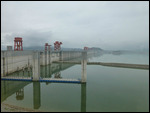
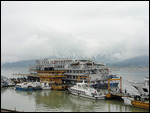
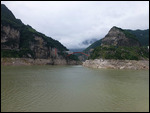
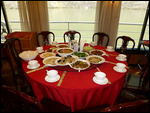
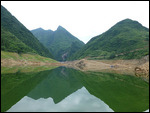
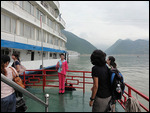
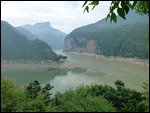
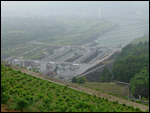
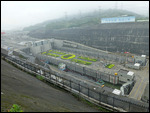
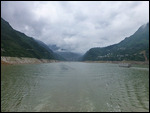
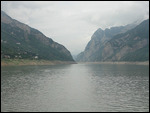

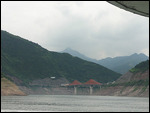
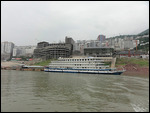
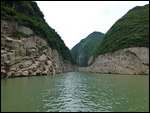
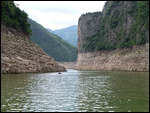
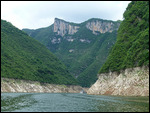
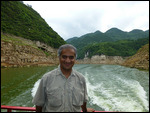
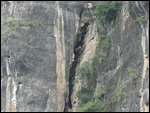
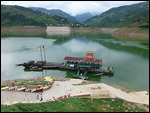
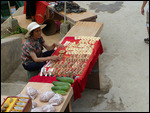
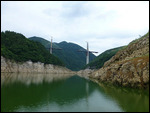
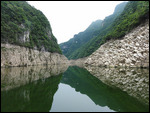
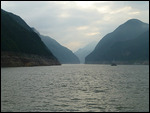
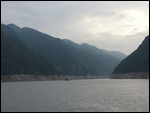
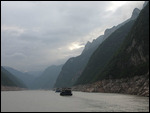
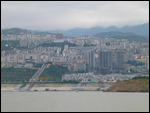
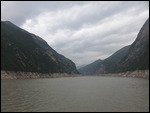
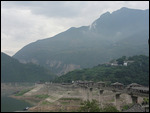
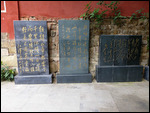
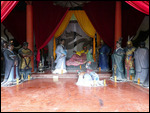

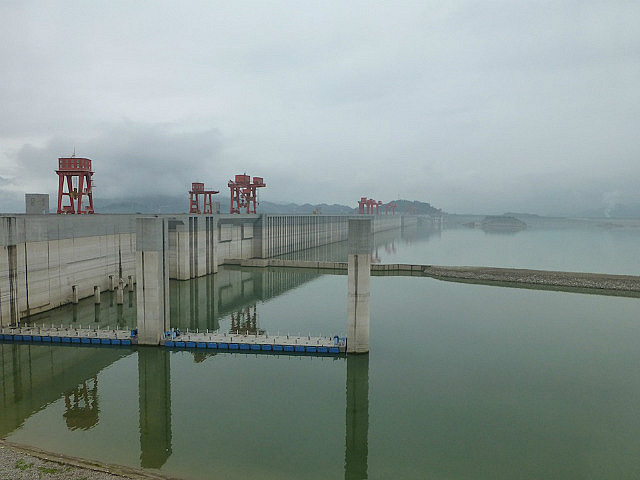
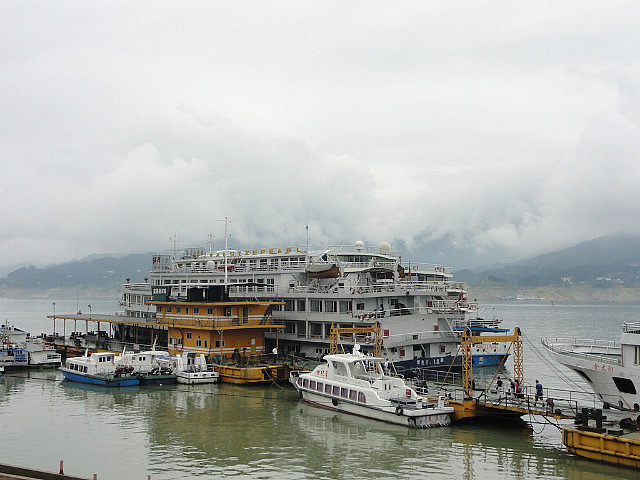
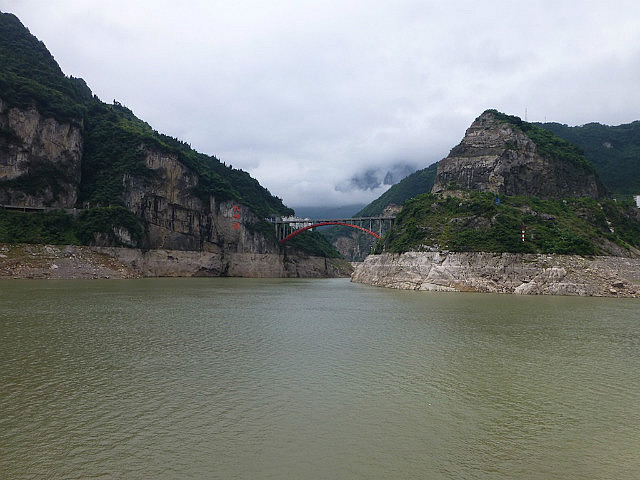
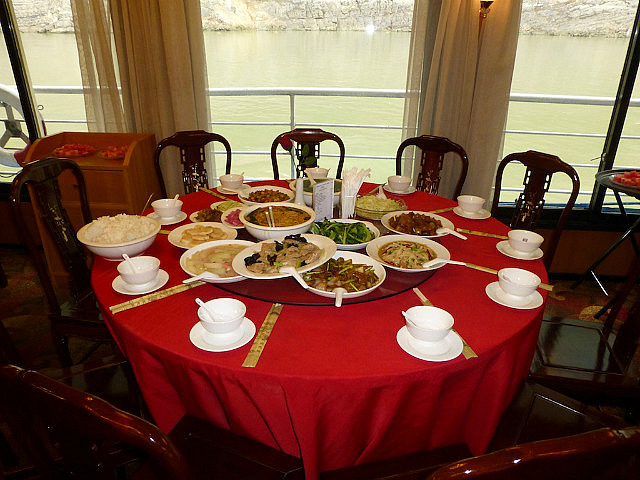
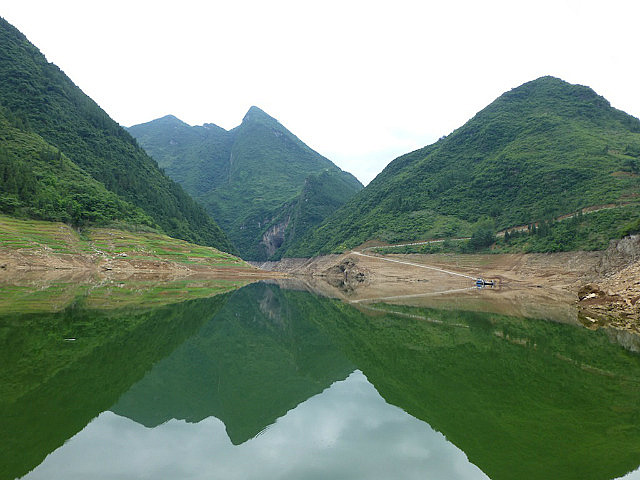
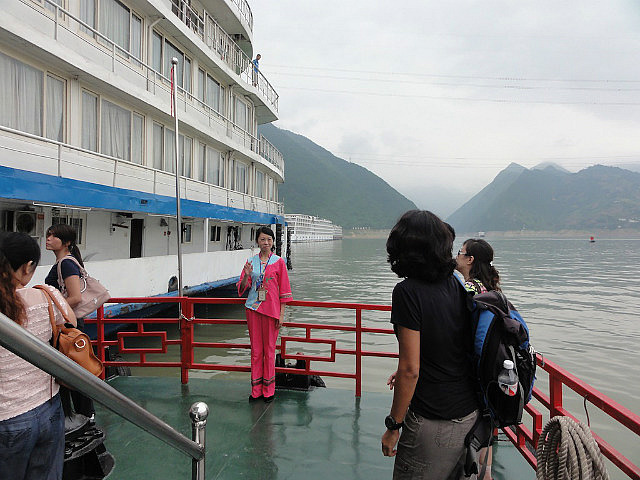

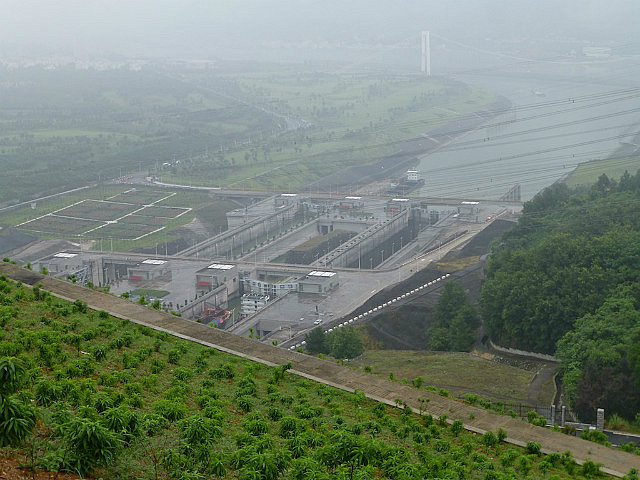
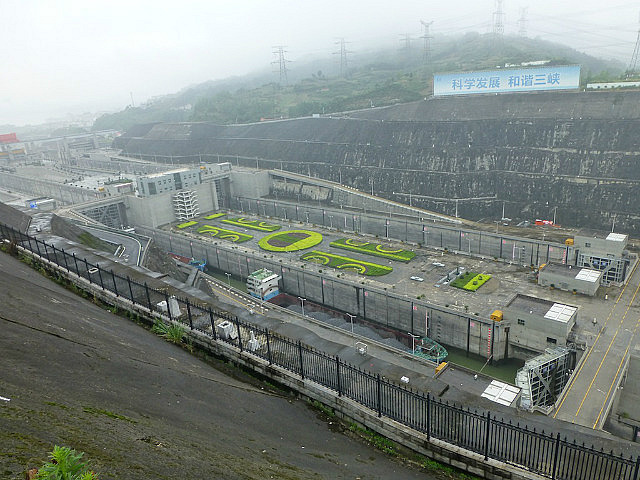
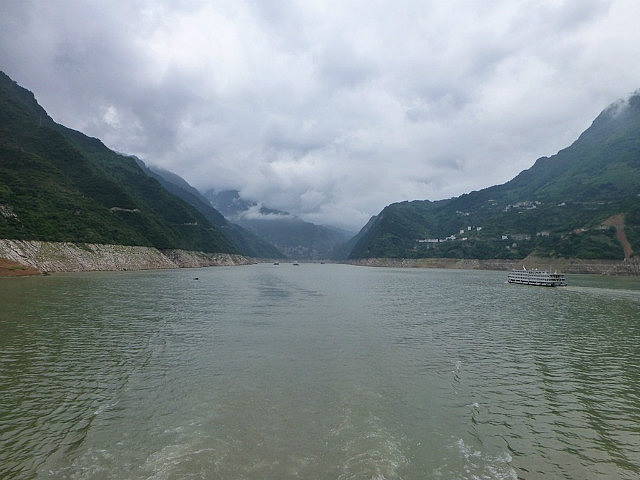
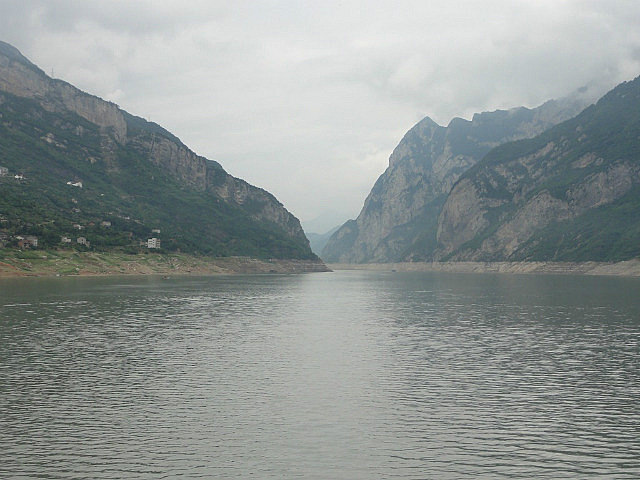
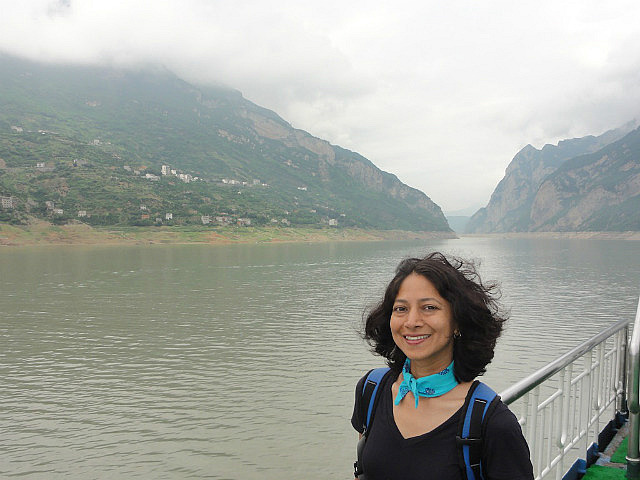
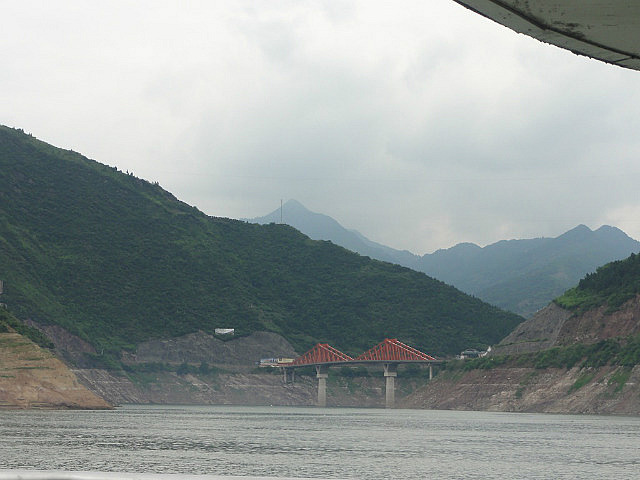
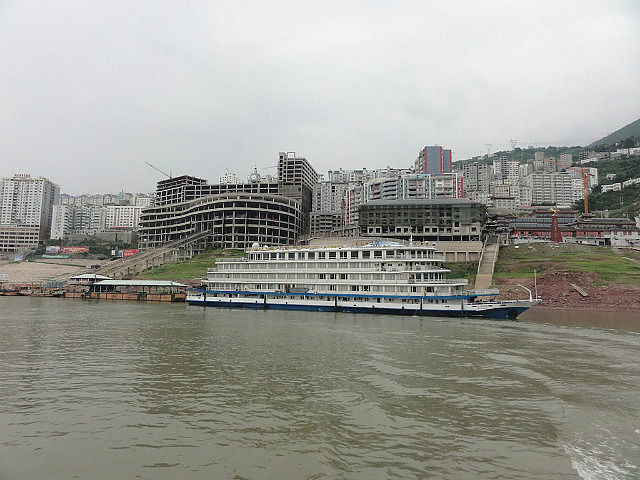
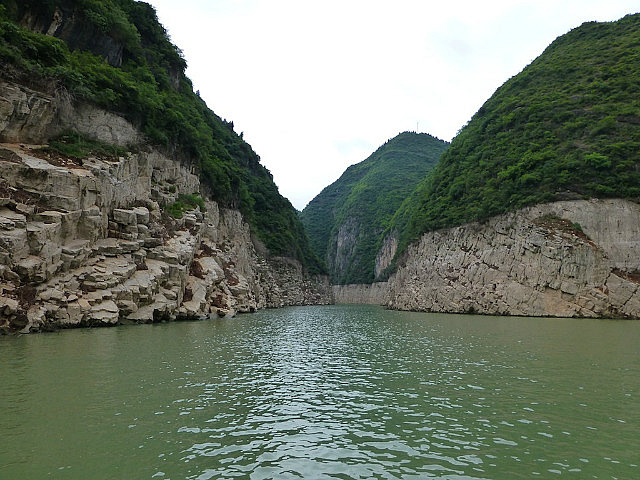
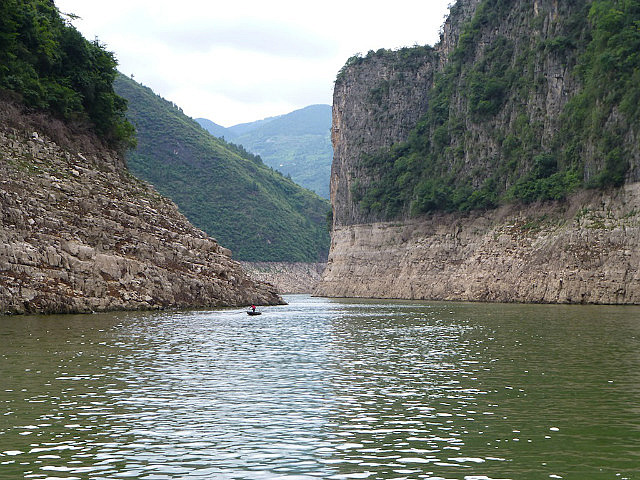
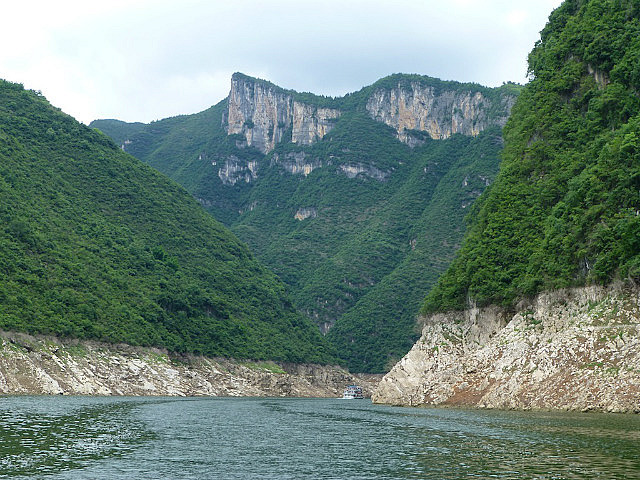
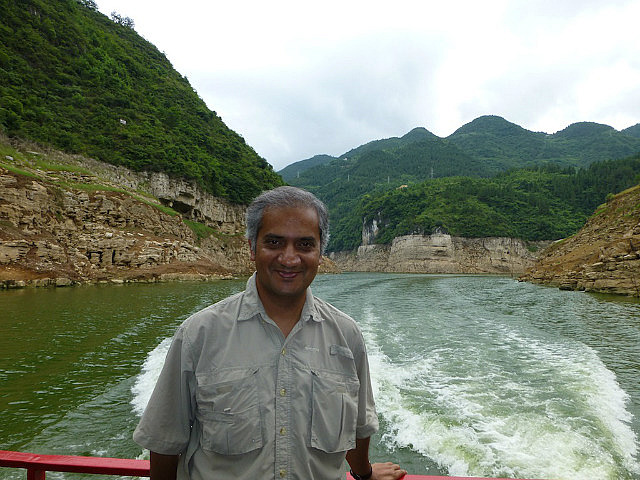
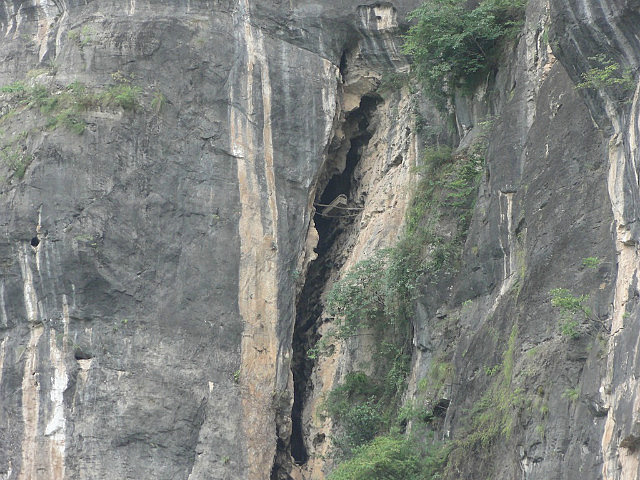
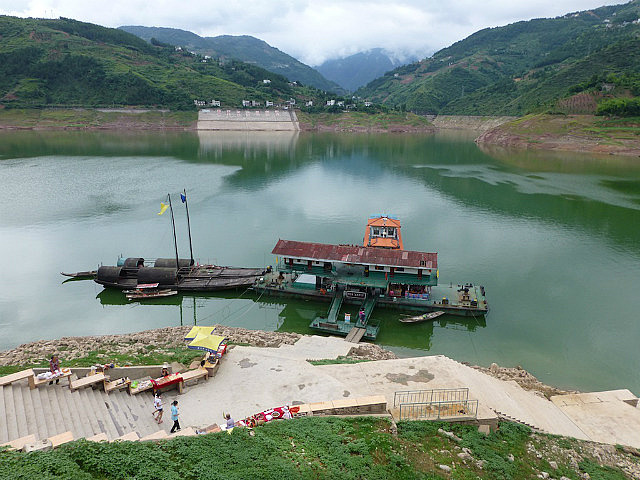
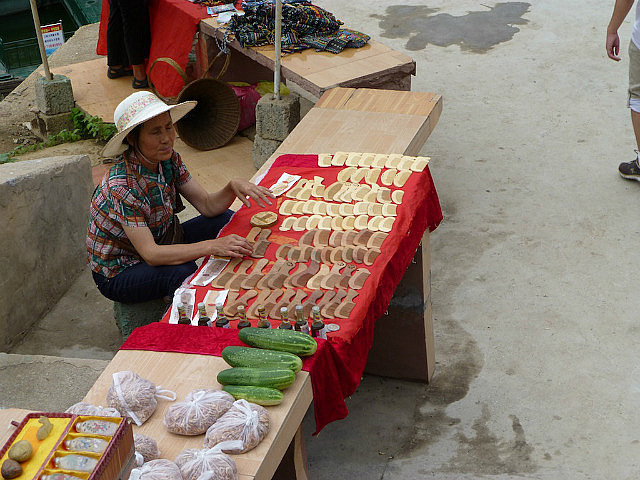
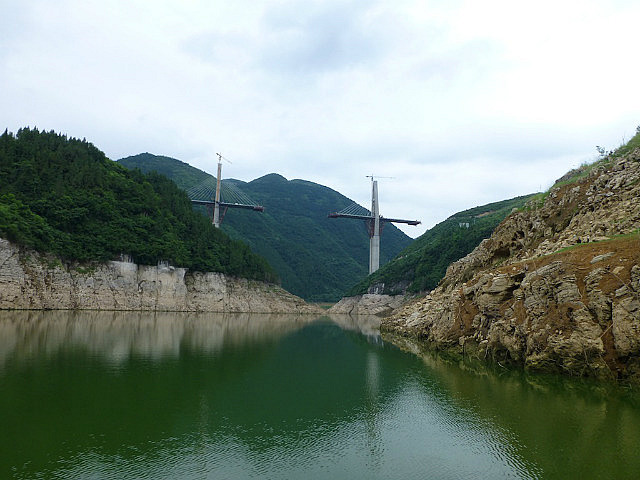
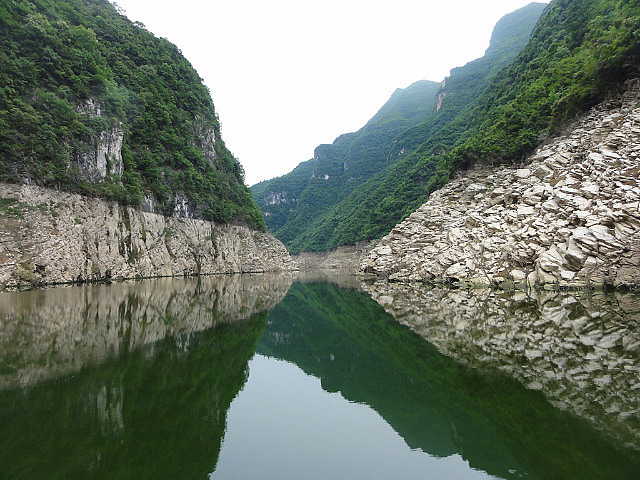
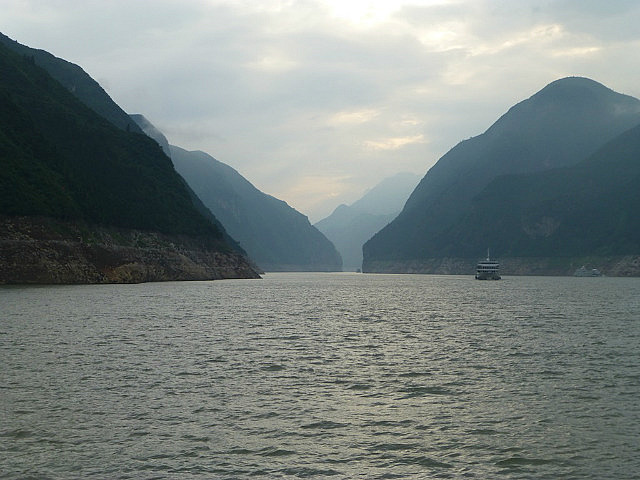
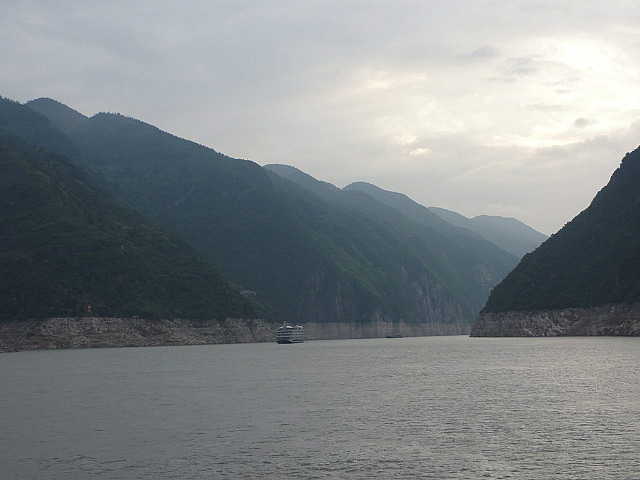
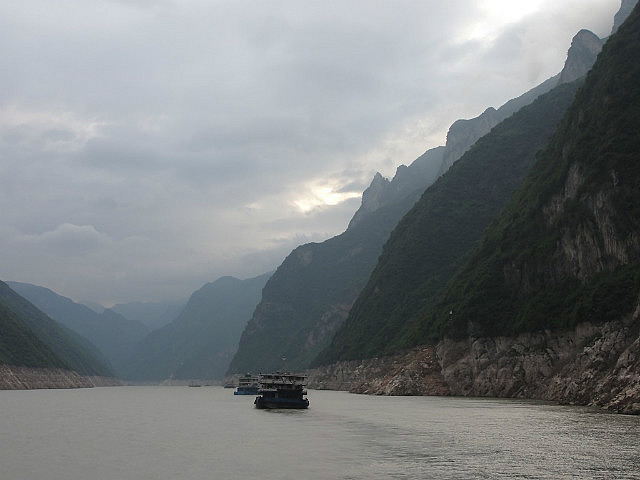
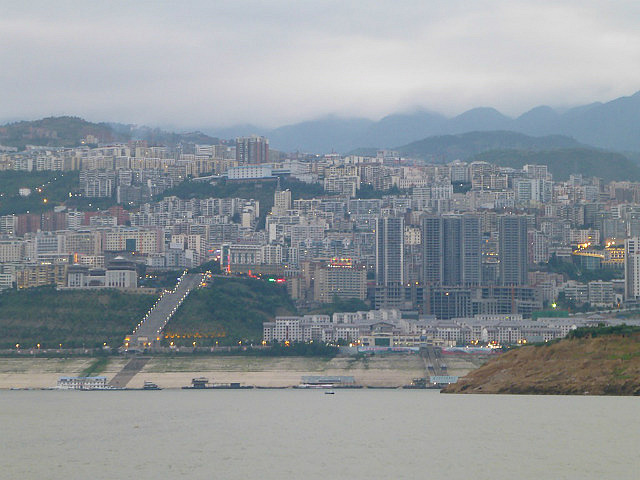

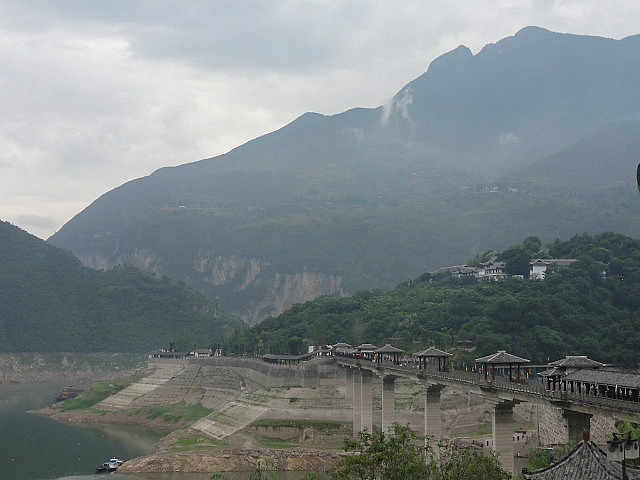
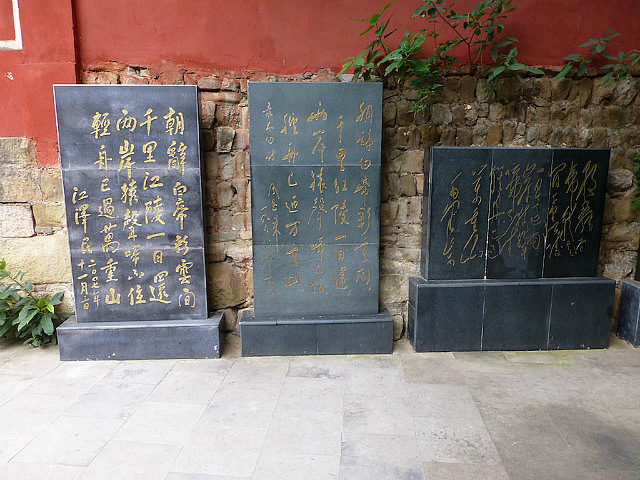
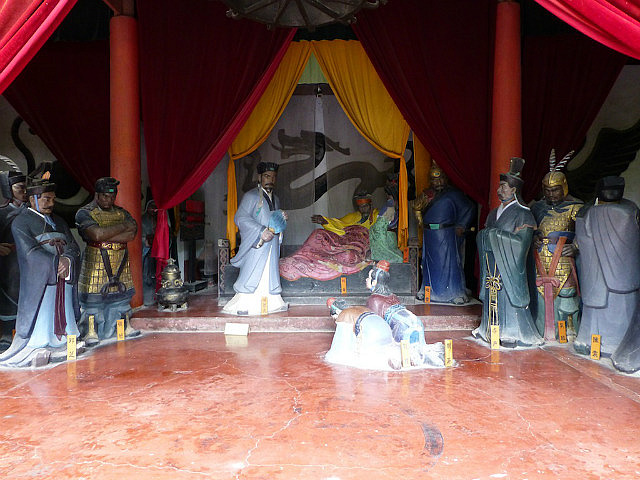
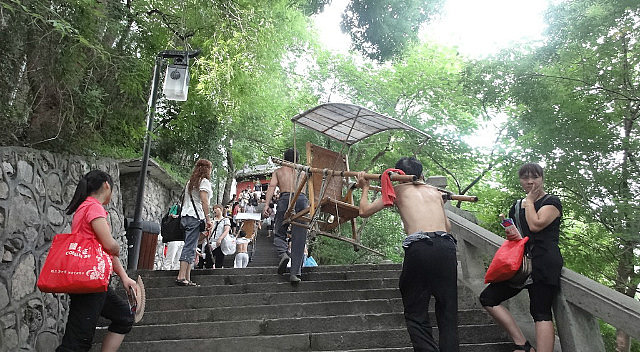
Comments